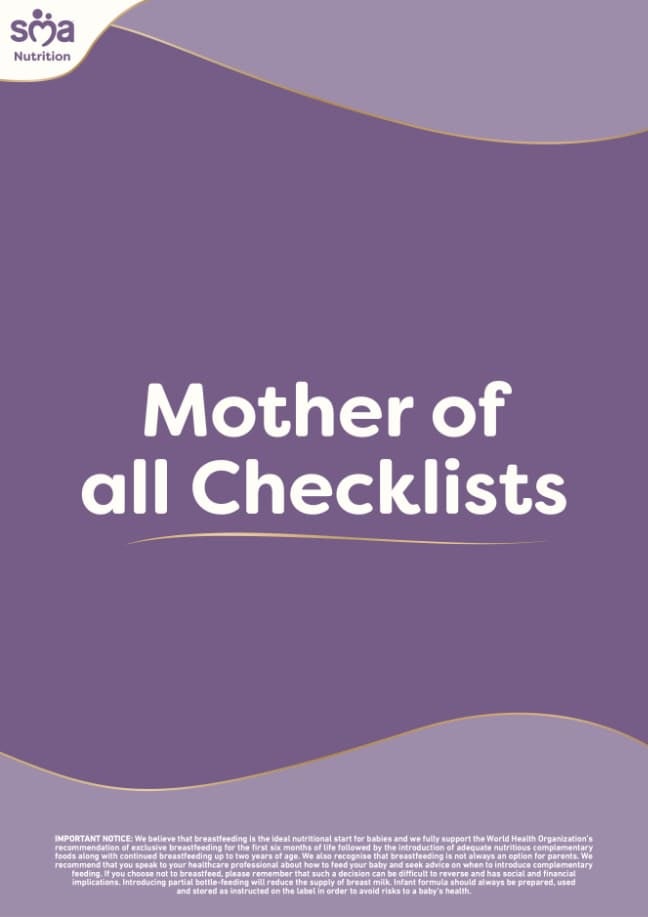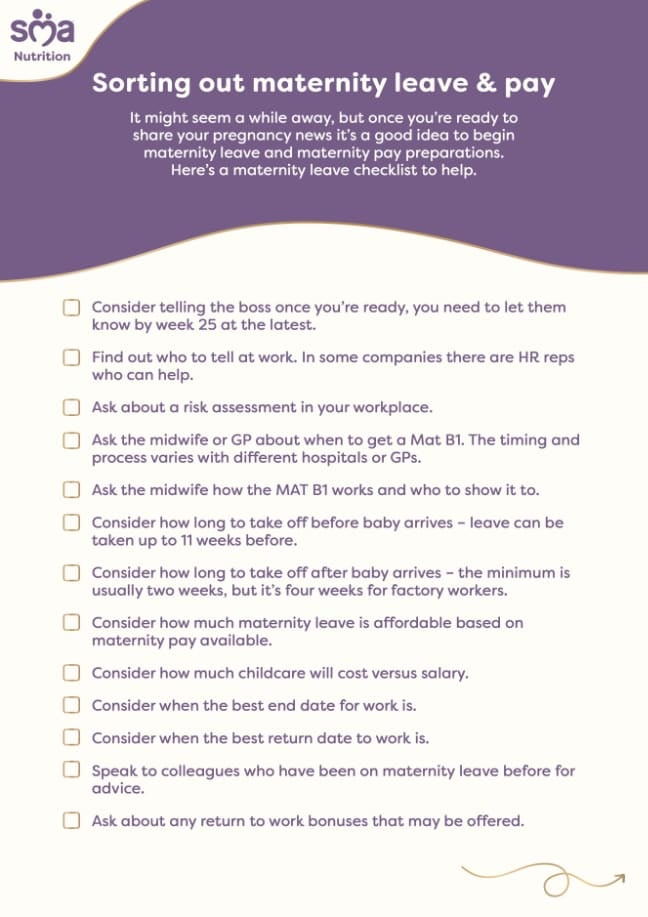Introduction
This article was reviewed in Nov 2023 and information provided in it may be subject to change as maternity rights in the UK evolve.
Before you get the additional job title of ‘mum’ it’s a good idea to take care of more official business. Just in case you’re wondering, you need to tell your employer at least 15 weeks before you’re due. Although you probably won’t be able to hide your bump under loose clothing that long anyway.
Before you get to week 25 here’s a few things worth knowing about maternity leave and maternity pay to make sure you have everything under control before things get real.
Maternity pay eligibility
To be eligible for Statutory Maternity Pay (SMP) you need to:
- Earn at least £123 a week on average
- Give your employer adequate notice (more on this below)
- Prove you’re pregnant. The bump isn’t enough, you need a MATB1 maternity certificate.
- Have worked for your employer continuously for at least 26 weeks up to the 15th week before your estimated due date.
To make sure you get your timing right, make use of the calculators on gov.uk.
Put this one in your diary: 21 days before starting your Statutory Maternity Pay (SMP), you need to give your employer either:
- A letter from your doctor or midwife.
- Your MATB1 maternity certificate – doctors and midwives usually issue these 20 weeks before the due date, but you could always remind them at your routine appointment.
If your employer isn’t doing their part, you should take action:
- Talk to your employer and get a written explanation.
- Make a formal complaint or speak to your trade union or employees’ rep if you have one.
- Call HM Revenue & Customs employee's enquiry line on 0845 302 1479 for advice
How long is maternity leave UK?
From those who are new at work, to those who feel like part of the furniture, every new mum is entitled to a whole year off. The only difference is pay – more on that later.
You don’t even have to wait until your baby is here. If you’d prefer to prepare and rest in the last weeks of pregnancy you can start your maternity leave as early as 11 weeks before baby is due. Or you can keep working and go off when baby arrives, leaving more time for cuddles.
You don’t have to take all 52 weeks. If you’re missing your job (or the pay) you can get back sooner. But the minimum time off is two weeks to recuperate, or four weeks if you work in a factory.
How much is statutory maternity pay?
If you’ve been at your job for a full 26 weeks then, by the time you are 15 weeks pregnant, you’ll qualify for statutory maternity pay.
Statutory maternity pay lasts up to 39 weeks. For the first six weeks you’ll get 90% of your average weekly earnings, before tax. The remaining 33 weeks will be either £172.48 a week or 90% of your average weekly earnings, whichever is lower. If you’re not sure, use this maternity pay calculator to see what you should be getting.
Staying safe at work
It’s understandable if you’re not ready to tell the boss right away, but just so you know, the sooner you do say something, the sooner your safety and wellbeing will be taken care of. Once your employer knows, they’ll need to complete a risk assessment of your job.
They’ll check if you’re:
- standing or sitting for long periods
- working long hours or nights
- lifting heavy loads
- exposed to toxic substances
If it’s not possible to make changes to the day-to-day tasks within your role then your employer will need to offer you a different position with the same pay.
My maternity rights while I’m away
While you’re on maternity leave you have the exact same employment rights as before. Which means you can build up holiday pay and you’re not excluded from pay rises.
In case you’re worried, employers aren’t allowed to use pregnancy as an excuse to make you redundant. So that should set your mind at ease while you’re off.
You may have heard of ‘keeping in touch days. Your employer might offer you these so you can ease back into work. It’s ten paid workdays you can use throughout your maternity leave. They’re optional and can be arranged with your boss to suit you, so see how you feel.
We have put together this handy maternity leave checklist to help you get organised.

Join SMA® Baby Club to receive the Mother of all Checklists. With 63 checklists across your parenting journey from pregnancy through to toddlerhood we have you covered.









